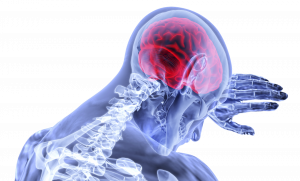 While you may think that traumatic brain injuries are all similar, the term actually covers various injuries that cause problems with how the brain works. Depending on the TBI’s severity, it may resolve without any medical intervention or require lifelong treatment. Here are some FAQs about TBIs.
While you may think that traumatic brain injuries are all similar, the term actually covers various injuries that cause problems with how the brain works. Depending on the TBI’s severity, it may resolve without any medical intervention or require lifelong treatment. Here are some FAQs about TBIs.
What Exactly is a Traumatic Brain Injury?
TBI is basically brain damage due to trauma, like a significant blow to your head. This results in the brain moving forcefully and suddenly inside your skull, causing a primary injury that damages your brain. In turn, this primary injury leads to secondary injuries in the brain’s cells, blood vessels, and chemical signals. Consequently, these secondary injuries cause more destruction and damage to the brain.
What are the Causes of Traumatic Brain Injuries?
Falls, according to the CDC, are the top cause of TBIs. Other common TBI causes include traffic accidents or auto accidents, violent assaults, and colliding against or being struck by an object, such as in contact sports. Essentially, any motion or action that causes whiplash, violent shaking, or violent hits to the head, could cause traumatic brain injury. This includes sports injuries and shaking an infant or little kid. The fluid that cushions and safeguards your brain isn’t capable of overcoming these jarring forces that can cause all kinds of brain damage. Depending on the force applied to the head, the damage could be mild and cause a bruise or minor concussion, or severe, with brain tissue tearing and hemorrhaging.
What are Common TBI Symptoms?
- Confusion, blurred vision, extreme sleepiness, and dizziness
- Irritability, noise sensitivity, and headaches
- Dilated pupils that affect both or just one eye, issues with speaking or walking, and slurred speech
- Vomiting and nausea
- Seizures, convulsions, and losing consciousness
- Stroke warning signs such as numbness or weakness on the face or one side of your body
Take note that in some cases, symptoms may not manifest for hours, days, or even months following a traumatic brain injury incident. This is why obtaining prompt and proper medical care is immensely vital after any kind of accident that causes even minor injuries. Yes, even if you feel “100% fine”.
What’s the Prognosis for Traumatic Brain Injuries?
Unfortunately, it’s difficult to predict who’ll suffer symptoms or permanent disabilities later on and who’ll experience a full recovery. Future outlook and recovery time will depend on various factors, such as the patient’s overall health, age, and severity of TBI. This is why routine doctor visits and examinations are vital for some time after the injury. Also, take note that TBIs can potentially raise the risk of developing degenerative brain diseases like Parkinson’s, Alzheimer’s, and dementia in some people.
Talk to The Georiga Traumatic Brain Injury Lawyers of Slappey & Sadd
If you or a loved one is suffering from a traumatic brain injury as a result of another individual’s negligence, make sure to obtain proper treatment and then consult a traumatic brain injury attorney as soon as you can to find out about your legal options and how you can recover compensation for your losses. Reach out to Slappey & Sadd, LLC, to arrange a free review of your case with one of our Georgia traumatic brain injury lawyers. You can reach us online or by phone at 404.255.6677.
 Georgia Injury Lawyers Blog
Georgia Injury Lawyers Blog

